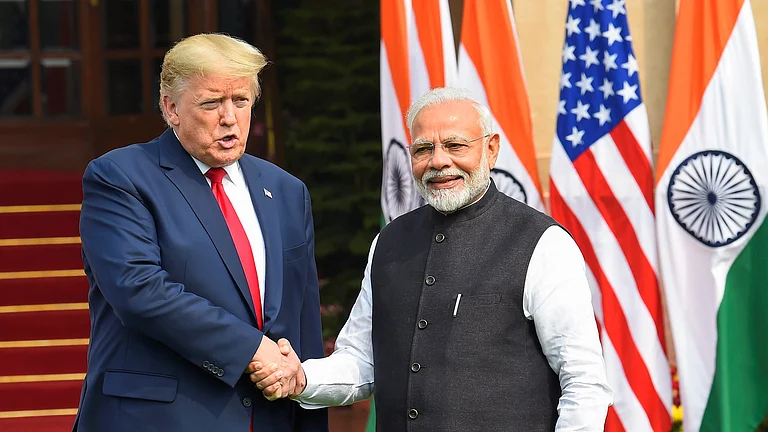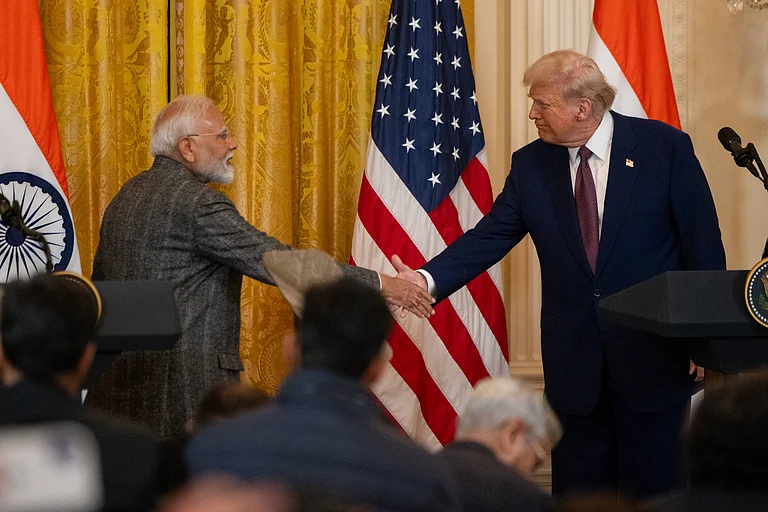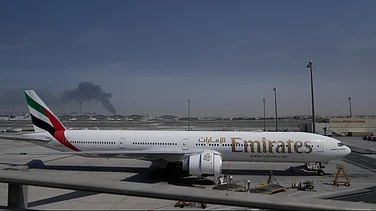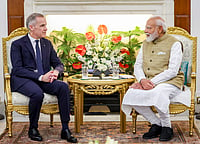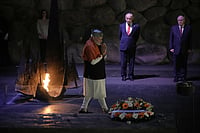
Summary of this article
1. Foreign Minister Subramanyam Jaishankar is visiting Moscow from August 20-21 for a meeting of the India-Russia inter-governmental commission
2. US President Donald Trump has threatened a 50 per cent hike on Indian imports in a bid to browbeat Prime Minister Narendra Modi’s government to discard lifting Russian oil and defence equipment
3. The foreign ministers’ visit follows that of National Security Adviser Ajit Doval, who was in Moscow earlier this month
With the question of Russian oil on everyone’s mind, Foreign Minister Subramanyam Jaishankar’s visit to Moscow next week (20-21)
The meeting of the India-Russia intergovernmental commission assumes great significance. India finds itself in Washington’s crosshairs, with Donald Trump threatening a 50 per cent hike on imports in a bid to browbeat Prime Minister Narendra Modi’s government to discard lifting Russian oil and defence equipment. Washington is exerting maximum pressure on New Delhi to abandon its long-standing arms supplier. Trump cited US national security concerns for his diktat, saying India was helping Putin to fund the Ukraine war.
The foreign minister’s visit follows that of National Security Adviser Ajit Doval, who was in Moscow earlier this month. This will be an opportunity for Jaishankar to discuss with his Russian counterpart, Sergey Lavrov, the repercussions of Trump’s executive order. Much will depend on what happens during Friday’s meeting between President Vladimir Putin and Donald Trump in Alaska. Whatever the outcome, Jaishankar will be briefed on the Russian position. The two will also lay the groundwork for President Putin’s visit to India later this year. The dates have not yet been finalised. A summit each year between the Indian and Russian leadership is part of the annual diplomatic calendar.
India’s Dilemma
India and Brazil have been hardest hit by the Trump tariffs. Initially, Trump slapped a 25 per cent tariff on all Indian exports to the US. He followed it up with another 25 per cent for lifting Russian oil. He threatened additional penalties if New Delhi continued to buy from Moscow. He gave a three-week gap before the full 50% tariff kicks in at the end of the month. The Modi government is facing a dilemma. The shutdown of the lucrative American market will be a massive blow for Indian exporters, as it will impact the Indian economy in various ways and lead to job losses. Already, the government is unable to provide jobs to large swathes of its youth population. America can put more pressure on New Delhi by making it difficult for US companies to hire Indian techies or get jobs in the US. Despite being the world’s fastest-growing economy, India has a long way to go before it can lift the vast majority of its population out of poverty. These will be important considerations for the government to mull over before making a decision on buying Russian oil. As of now, it continues to do so in smaller quantities than before. China is the biggest buyer of Russian oil.
At the same time, India is not in the habit of taking dictation on foreign policy from a third country. It has always valued its strategic autonomy and believes in a multi-polar world, where countries take independent decisions that are good for their people.
What Are India’s Options?
The first is to double down and continue buying Russian oil, whatever the consequence. New Delhi is hoping that the Alaska meeting between Donald Trump and Vladimir Putin leads to a breakthrough.
In case the meeting goes well and a compromise between Russia and Ukraine can be worked out, India can possibly wiggle out of a tough situation. The question of secondary sanctions on Russian oil will be laid to rest.
However, if there is no breakthrough, Trump has already threatened that more rigorous sanctions, including those on third countries buying from Russia, will kick in by August 27. In such a case, New Delhi can be slapped with massive penalties that could go up to 100 per cent or as much as 250 per cent on Indian pharmaceuticals. The Indian economy cannot stomach this.
India will then have no option but to explain to President Putin that, for the sake of national interest, the buying of oil and more defence equipment from Moscow will have to stop. Officials believe that India’s equation with Russia is strong enough for Putin to understand its compulsion. While the oil purchase can stop, political relations with Russia will continue to be strong. Bilateral visits, the long-term defence arrangements will remain in place.
Already, state-owned refineries have stopped or reduced buying Russian oil due to the narrowing of discounts. Private parties like Reliance continue to do so. Still, if secondary sanctions are on and companies that do business with Russia are stopped from entering the American market or accessing its financial network, that would stop. No company can afford not to do business with the US.
The picture will be clearer after the Alaska talks. However, even if India is forced to abandon Russian purchases for now, political ties and trust between the two governments will remain in place.




